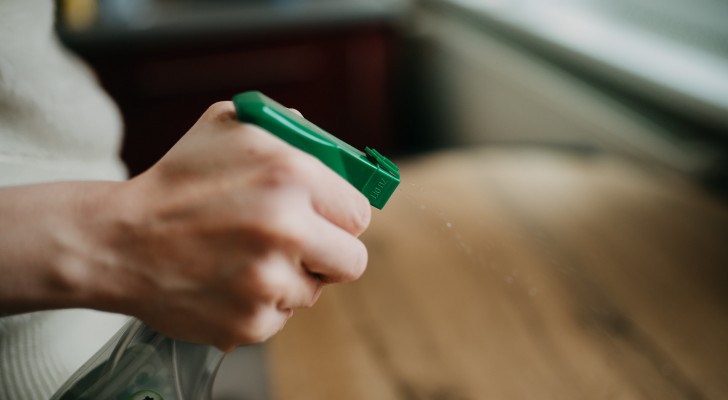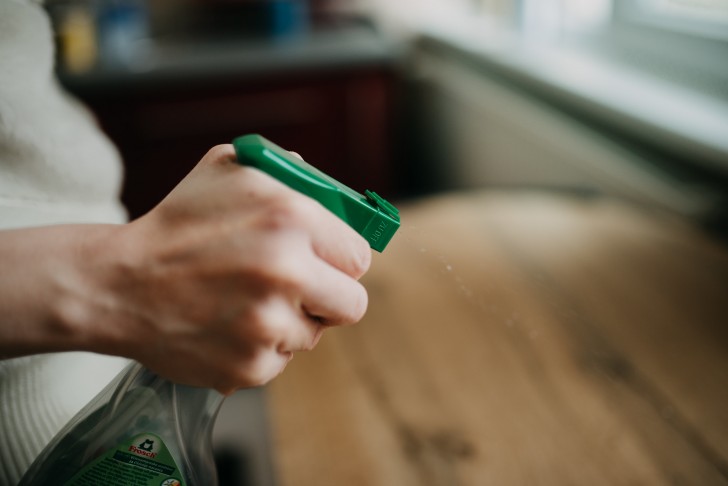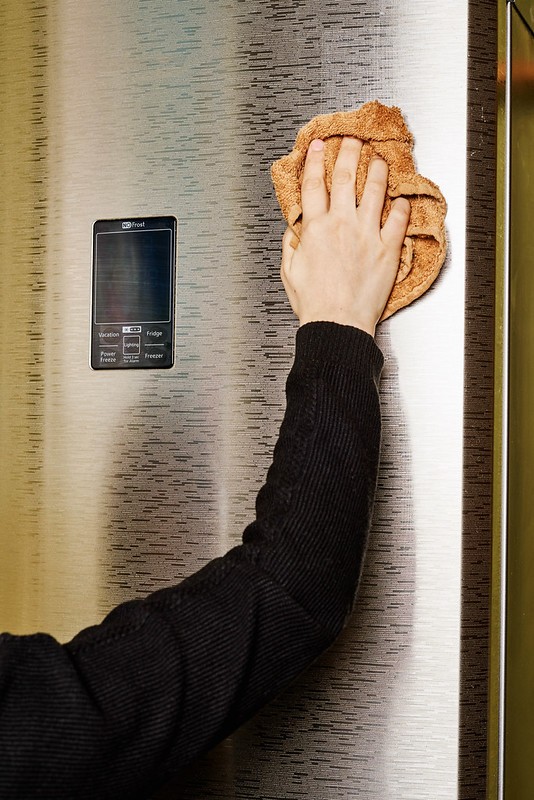Does polishing stainless steel seem impossible? Not with a spray-on wood furniture cleaner!

As you know, your furniture can be kept clean and polished with the help of specially-formulated commercial spray wood cleaners/creams/polishes (and other products).
In the context of moving towards a more sustainable lifestyle, one of the actions that can be taken is chose multi-purpose cleaning products, thereby reducing the number of bottles of detergents that we use (and which can pollute the environment when thrown away). Similarly, choosing natural alternatives to these products is another way to protect the environment.
In this regard, have you ever wondered what else a wood furniture cleaner could be used for?
Well, for those who have metal surfaces at home (as the modern style "dictates), furniture polish/cream can be very useful. Let's find out how:
How to clean stainless steel with furniture polish

Stainless steel is prone to staining and streaking, not to mention the fingerprints that often cover the surface and are particularly difficult to remove. In these cases, no cleaning product seems to be particularly effective.
That said, a very effective method for polishing stainless steel involves using olive oil. However, this oil leaves the surface oily and slippery, and it does not guarentee perfect hygiene as it is an organic compound. This is where furniture polish comes to our aid.
You can spray a furniture polish product on a soft microfiber cloth and wipe down the steel, following the grain of the metal. You will quickly return the metal to a perfectly shiny, stain-free conditon using this method.
Natural remedies to clean stainless steel perfectly

Marco Verch Professional Potographer/Flickr
If you want to use natural remedies for cleaning the stainless steel in your home, you can use the following:
- Vinegar and lemon: These are very effective if the surface is marred by limescale residue. To polish steel, mix the juice of a lemon with 200 g of citric acid in 1 liter of water and 4 tablespoons of white vinegar. Spray directly on the surface and rub it down with a microfiber cloth.
- Baking soda: This is useful in case of dirt deposits other than limescale. It can be sprinkled on the surface before rubbing down with a soft damp sponge; or you can prepare a paste with a little water to rub on with a sponge.
- Denatured ethyl alcohol: This is very effective in cleaning stainless steel and can be simply applied with a microfiber cloth. However, this product tends to dry out the surface, which will need polishing later to restore its brilliance.
Which remedy do you prefer for cleaning your stainless steel surfaces at home?